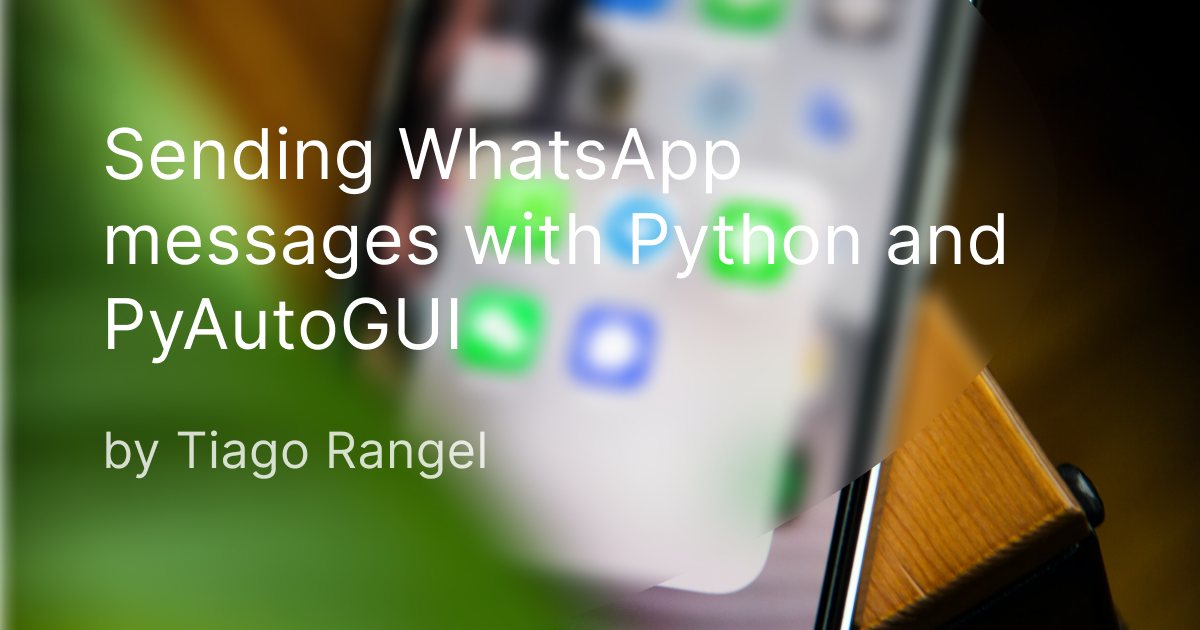Sending WhatsApp messages with Python and PyAutoGUI
 Tiago Rangel de Sousa
Tiago Rangel de Sousa
This post was originaly posted on my medium
The project
Hi everyone! Today I’m building a text-to-whatsapp python app
Bellow, I have the code, and I will explain everything in the comments.
Oh, but first run the following commands:
$ pip3 install web-browser
$ pip3 install pyautogui
And here we have our code:
import webbrowser # import the webbrowser library, see line bellow
import pyautogui #import the library that will simulate clicks
import time # for sleep
msg = input("Message: ")
phone = input("Telephone number: +")
sim = input("Press enter to send") # Verify
webbrowser.open("whatsapp://send?text=" + msg + "&phone=" + phone) # Open whatsapp's URL protocol. This will open the Whatsapp app and open the send dialog
time.sleep(9) #Give time for the program to execute
pyautogui.click(1870, 984) # Send message (simulate click on send button)
time.sleep(1) # wait 1 sec
pyautogui.click(1900, 4) # simulate click to close whatsapp
To use this code, you must have Whatsapp installed and a 1536x864 (width x height screen. If you don’t have a screen of that dimensions, open WhatsApp, execute the following code, and immediately position your mouse over the close button and the send button of WhatsApp. The program sleeps 5 seconds after execution. Then, change the X and Y coordinates of the pyautogui.click() functions to the results.
import pyautoguiimport
timetime.sleep(5)
print(pyautogui.position()) # Gives you: _Point(x=XXX, y=XXX)_
Thanks for reading!
Subscribe to my newsletter
Read articles from Tiago Rangel de Sousa directly inside your inbox. Subscribe to the newsletter, and don't miss out.
Written by

Tiago Rangel de Sousa
Tiago Rangel de Sousa
Hi! I'm Tiago, a design-minded student focused on building beautiful interfaces & experiences